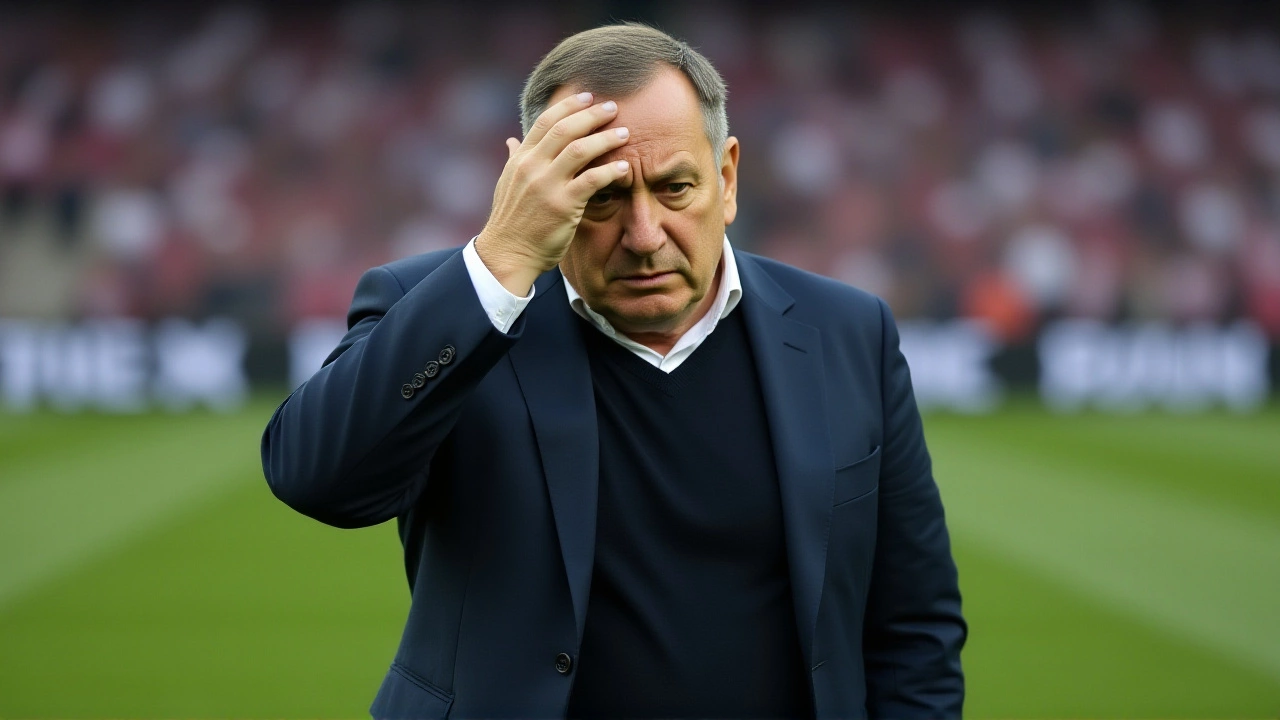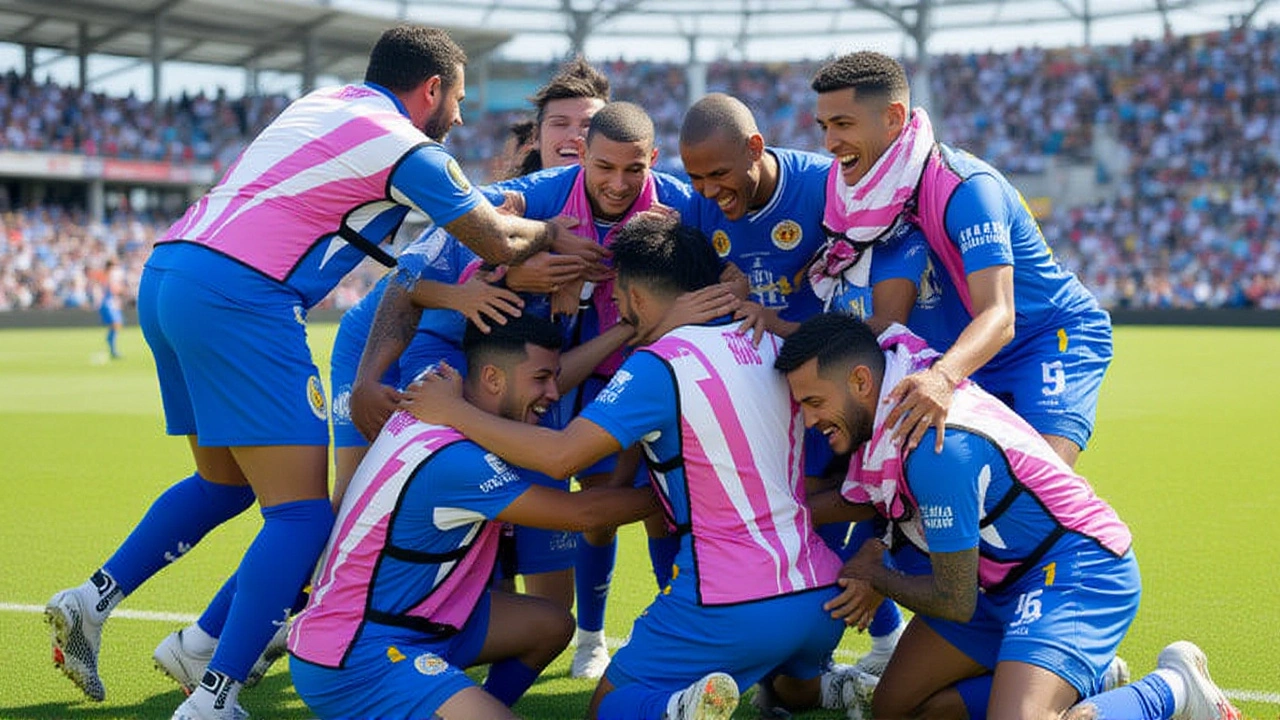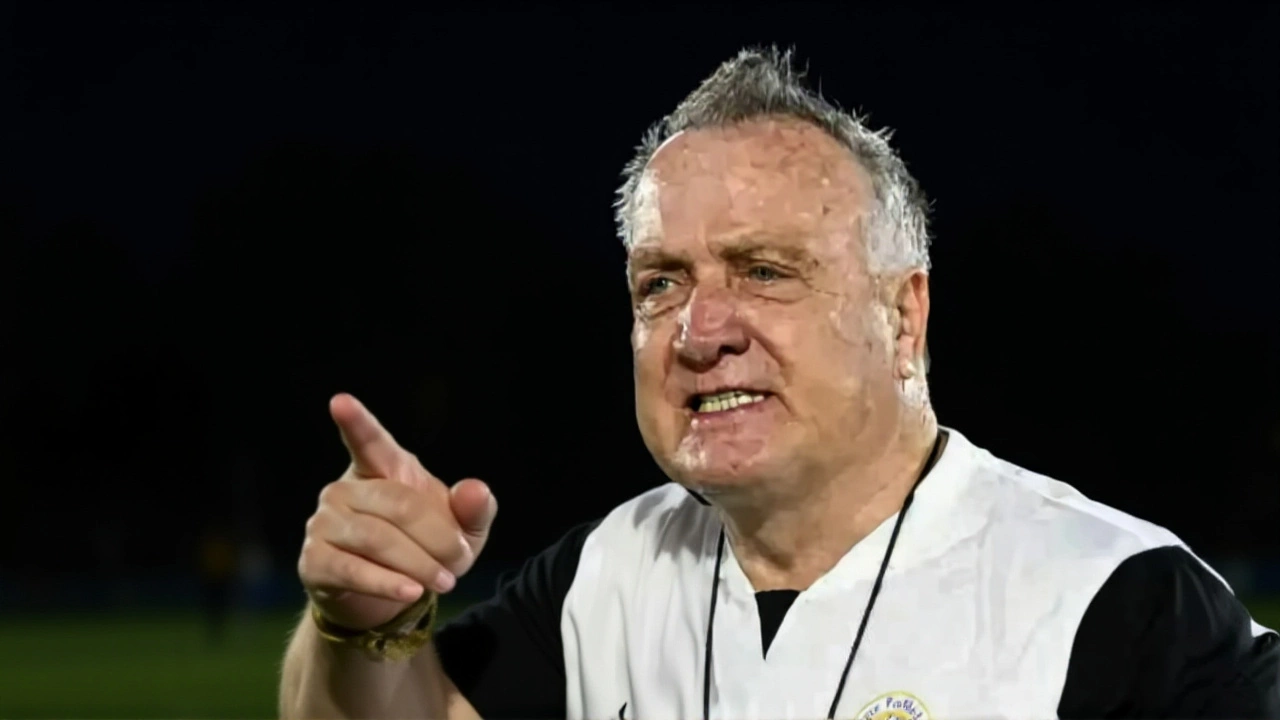When Virgil Misidjan unleashed a 30-yard rocket in the 93rd minute at the André Kamperveen Stadion, the entire stadium held its breath — then exploded. The ball clipped the crossbar, bounced off the back of goalkeeper Etienne Vaessen — who’d charged up for a corner — and slipped past Guatemala’s Nicholas Hagen like a ghost. Misidjan’s goal didn’t just salvage a 1-1 draw on November 17, 2025; it kept Suriname’s historic World Cup dream alive. With that strike, the Natio remained undefeated in 2026 FIFA World Cup qualifying, inching closer to their first-ever finals appearance. And behind the scenes, the team’s identity isn’t just Surinamese — it’s deeply Dutch.
From Amsterdam to Paramaribo: The Dutch Connection
Suriname’s national team is built on a quiet revolution. Of the 23 players in their current squad, more than half were born in the Netherlands to Surinamese parents. These aren’t just dual nationals — they’re elite professionals from the Eredivisie, Eerste Divisie, and even lower-tier Dutch clubs who chose to wear the Surinamese jersey. Why? Because they believe this team can do what their parents’ generation couldn’t.
It’s no accident that Stanley Menzo, born June 15, 1963, in Paramaribo, now leads this charge. The former Ajax and Arsenal goalkeeper — who made just one Premier League appearance in 1994 — returned home not as a retired star, but as a mission-driven manager. His assistant, Henk Fraser, born in Paramaribo in 1965, played for Feyenoord and Anderlecht before joining Menzo’s staff. Together, they’ve stitched together a team that blends Dutch discipline with Caribbean flair.
The 1977 Ghosts and the Amateur Gold Cup Win
Menzo doesn’t hide the weight of history. He regularly speaks with the surviving players from Suriname’s near-miss in 1977, when the team lost a playoff to Honduras by a single goal. "You were on the step," Menzo told them. "Now we’re on the same step. Let’s climb it."
That step became a mountain when Suriname qualified for the 2023 CONCACAF Gold Cup — with a squad mostly made up of amateur players from Dutch lower leagues. "We qualified for the Gold Cup with amateurs, which was fantastic," said Gorré, a former player turned administrator. "But after that, we talked to the government. We said: This isn’t just about soccer. This is about identity. About pride. About showing the world Suriname belongs on the biggest stage."
And they listened. The Surinamese government, long skeptical of funding a national team with little global visibility, allocated $2.3 million for player development, travel, and professional coaching staff. For the first time, players received monthly stipends. Training camps were held in the Netherlands, where facilities and expertise were readily available.

The Stakes Are Higher Than Ever
Suriname isn’t just chasing a World Cup slot — they’re chasing legacy. Since independence from the Netherlands in 1975, the country has struggled to assert itself internationally. Football became its most potent symbol. The country’s club side, Transvaal, won the CONCACAF Champions Cup twice in the 1970s. Players like Edgar Davids, Aron Winter, and Clarence Seedorf — all born in Paramaribo — became Dutch icons, yet never played for Suriname.
Now, the tide is turning. Misidjan, who plays for FC Utrecht in the Eredivisie, is one of five Dutch-based players with over 20 caps for Suriname. Others include Randy Schneider (FC Groningen), Djimon Houtman (Sparta Rotterdam), and Jordy de Wijs (a former Netherlands U21 international who switched allegiance in 2023).
What Comes Next? The Final Push
Suriname sits third in Group B of the CONCACAF Second Round, with four games remaining. They need to finish in the top two to advance to the final qualifying round — a six-team tournament where only three teams will qualify for the 2026 World Cup. Their next match is away against Haiti, who already secured qualification. A draw there would be a moral victory. A win? That could be historic.
"We’re not just playing for ourselves," Menzo said after the Guatemala match. "We’re playing for every kid in Paramaribo who grew up watching Davids on TV and thought: ‘I could be him — but for Suriname.’"

Legacy Beyond the Pitch
The story of Suriname’s World Cup bid stretches back further than 1977. In the 1980s, former captain and FIFA vice president Jack Warner — born in Trinidad but of Surinamese descent — helped found the Caribbean Football Union. He attended the 1982 World Cup in Spain just months before his death. His vision was simple: Caribbean nations should have a voice in the confederation that often overlooked them.
Today, that voice is growing louder. Suriname’s campaign isn’t just about football. It’s about recognition. About proving a small nation with a population of just 600,000 can compete on the world’s biggest stage — not by luck, but by strategy, heritage, and sheer will.
Frequently Asked Questions
Why are so many Surinamese players born in the Netherlands?
After Suriname gained independence in 1975, hundreds of thousands of Surinamese migrated to the Netherlands for economic opportunity. Their children grew up there, developed in Dutch academies, and became professional players. Many now choose to represent Suriname — not out of obligation, but because they see a chance to make history for their ancestral homeland.
How does Suriname’s current team compare to the 1977 squad?
The 1977 team was mostly homegrown, playing in Suriname’s domestic league with limited resources. Today’s squad features players from top Dutch clubs, professional coaching, and international exposure. They’ve also benefited from government funding and a unified strategy — something the 1977 team lacked. The talent level is significantly higher now.
What’s the significance of the 1-1 draw against Guatemala?
That result preserved Suriname’s perfect record in qualifying and kept them in second place in their group. With Haiti already qualified, Suriname’s path now hinges on beating Honduras and drawing with Guyana in their final two games. A single loss could end their dream — making every point critical.
Why did the Surinamese government suddenly invest in the team?
After Suriname’s surprise 2023 Gold Cup qualification — achieved with amateur players — public pressure mounted. The government realized the team’s visibility could boost tourism, national pride, and international recognition. A $2.3 million investment followed, funding travel, salaries, and youth academies — a first in the country’s football history.
Can Suriname realistically reach the 2026 World Cup?
It’s unlikely, but not impossible. They need to finish second in their group to reach the final round, then outperform teams like Canada, Jamaica, and Honduras. Their best chance lies in a strong defensive performance and capitalizing on set pieces. Even if they don’t qualify, their campaign has already reshaped how the world sees Surinamese football.
Who are the key players to watch in Suriname’s final matches?
Beyond Virgil Misidjan, keep an eye on Randy Schneider, a creative midfielder from FC Groningen, and goalkeeper Etienne Vaessen, who saved a penalty in the Guatemala match. Defender Jordy de Wijs brings Premier League experience and leadership. These are the men carrying the weight of a nation’s dream.
